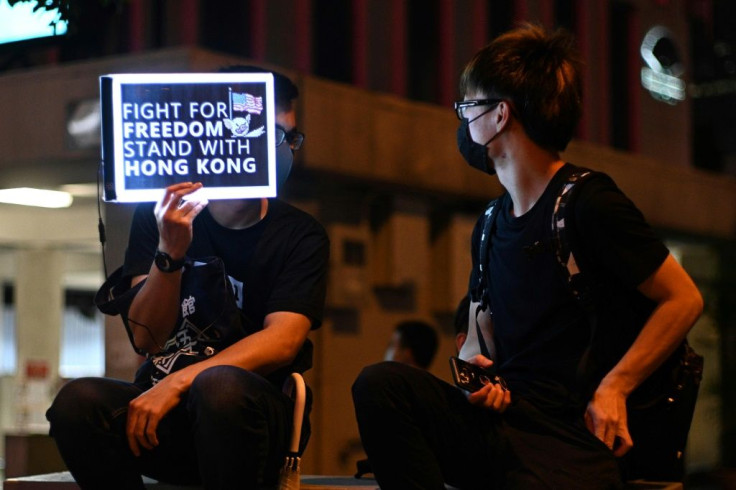China Slams US As 'Source Of Chaos', Rejects Universal Human Rights Standards

KEY POINTS
- Chinese vice foreign minister Ma Zhaoxu accused the United States of being a “source of chaos” and said, “Some countries are making color revolutions all over the place to force regime change under the banner of human rights.”
- China insists it is up to each nation to choose its own path when it comes to human rights
- A few weeks ago, the US House of Representatives passed a bill condemning the mass detentions of an estimated million or so Uyghurs, Kazakhs and other ethnic minorities in Xinjiang
Chinese vice foreign minister Ma Zhaoxu spoke at a human rights forum Wednesday in Beijing. He accused the United States of being a “source of chaos” and said, “Some countries are making color revolutions all over the place to force regime change under the banner of human rights.” The term “color revolutions” refers to the symbolically named series of peaceful uprisings in the former Soviet Union in the 2000s.
Also speaking at the forum was Communist Party propaganda chief Huang Kunming who said, “There is no universal human rights path and model in the world. The development of the cause of human rights must and can only be promoted in accordance with the national conditions of each country and the needs of the people.”
China insists it is up to each nation to choose its own path when it comes to human rights. What China doesn’t seem to get is that while the direction of that “path” to a universal human rights standard can be argued ad nauseam, the denial of said human rights by the Chinese Communist Party is the reason the U.S. and other countries are enacting legislation and taking other actions against Beijing.
An altruistic but tough authoritarian controlled government aimed at growing the economy and raising living standards might work with a populace of ignorant, uneducated people needing direction. But, for most of the world, the Western concepts of free speech, liberal democracy and civil rights are, as the authors of the United States Constitution would claim, inalienable.
The citizens of Hong Kong and the Uyghur Muslims are certainly not ignorant nor uneducated and it is clear what path they desire given the recent elections in Hong Kong and the outrage of Uyghurs living outside China toward the internment camps in Western China.
A few weeks ago, the US House of Representatives passed a bill condemning the mass detentions of an estimated million or so Uyghurs, Kazakhs and other ethnic minorities in Xinjiang. China is trying to avoid sanctions by explaining that the camps are re-education facilities and a job training program aimed at battling poverty and religious extremism.
Ma Zhaoxu did not refer directly to legislative moves by the U.S., but the connection was clear when he said, “This has led to conflicts and instability, and one humanitarian crisis after another. This is an important source of chaos in the world today” at the human rights forum.
He added, “Some nations are wielding ‘sanctions batons’ recklessly and stepping up economic blockades, moving to decouple science and technology and impose financial sanctions against target nations. These acts not only hinder the development of the world economy, but also violate the human rights of the people of the affected countries. They must be firmly opposed and resisted.”
History will be the likely arbiter as to what path leads to universal human rights and it will also judge the level of altruism in China’s attempts to re-educate the Uyghur Muslim minority and quell the violence in Hong Kong.
© Copyright IBTimes 2024. All rights reserved.




















